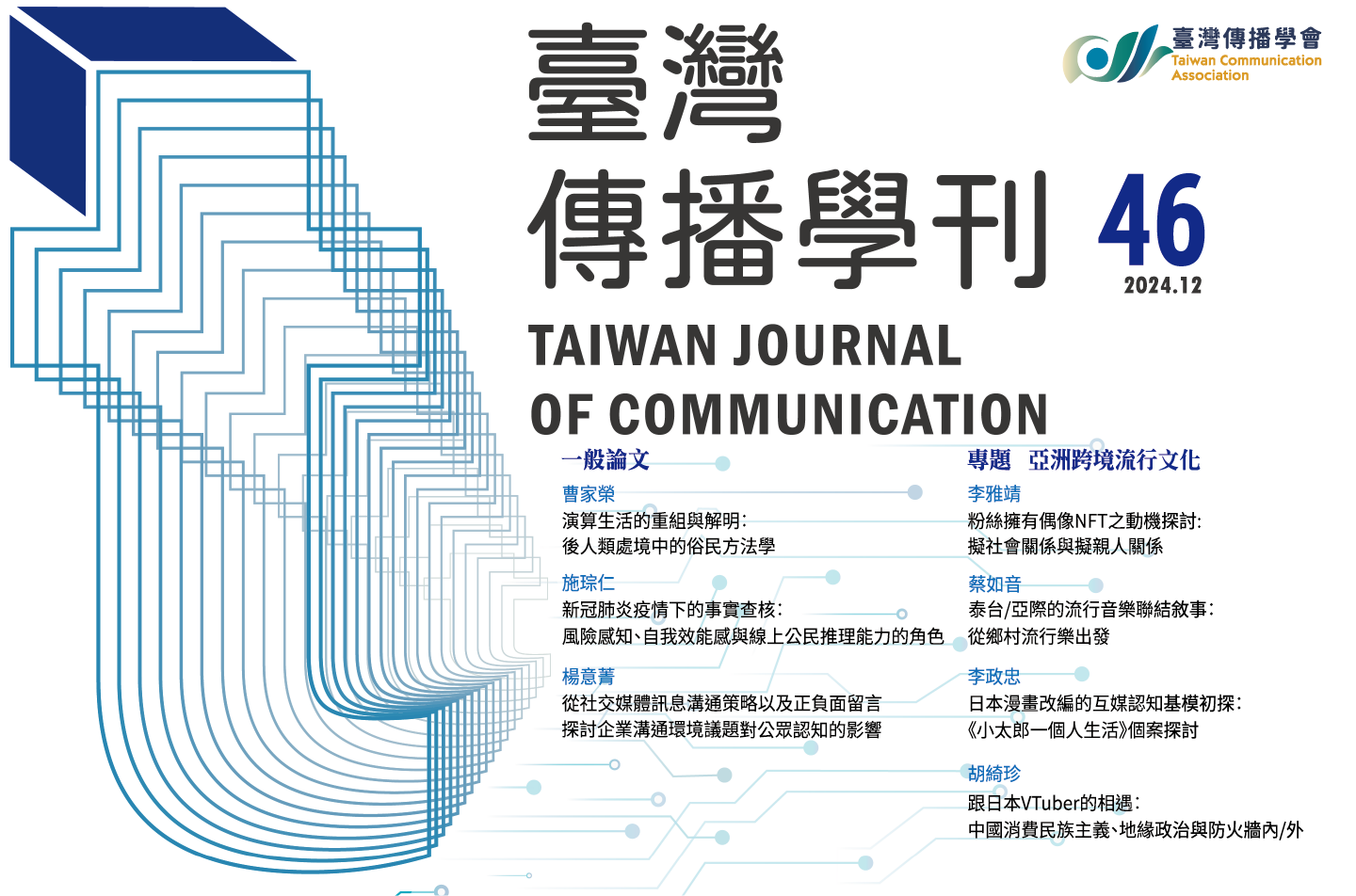 閱覽人數: 3993
閱覽人數: 3993
December
2024
No. 46
亞洲跨境流行文化
Cross-border popular culture in Asia頁數:271 - 308
作者(中)
胡綺珍
作者(英)
Kelly Hu
關鍵詞(中)
VTuber、中國消費民族主義、地緣政治、防火牆、受害者
關鍵詞(英)
VTuber, Chinese consumer nationalism, geopolitics, the Great Firewall, victim
中文摘要
本研究針對2020 年日本Hololive 旗下VTuber 桐生可可直播在中
國引發辱華爭議事件,藉由分析知乎網站上相關貼文發現:消費民族
主義為主流網路論述,交織著以金主與受害者自居的愛國情感、二次
元次文化,與地緣政治想像下對西方∕日本作為他者投射的仇恨。非
主流派則是試圖從全球市場機制的角度理解,擺脫防火牆內與外產生
的區分隔闔,追求彈性跨國流動與消費的自由。此外,由於NBA 與維
他奶引發的消費民族主義受挫,2022-2023 年掀起了一波除魅化的趨
勢。
國引發辱華爭議事件,藉由分析知乎網站上相關貼文發現:消費民族
主義為主流網路論述,交織著以金主與受害者自居的愛國情感、二次
元次文化,與地緣政治想像下對西方∕日本作為他者投射的仇恨。非
主流派則是試圖從全球市場機制的角度理解,擺脫防火牆內與外產生
的區分隔闔,追求彈性跨國流動與消費的自由。此外,由於NBA 與維
他奶引發的消費民族主義受挫,2022-2023 年掀起了一波除魅化的趨
勢。
英文摘要
This study examines the controversy surrounding Hololive VTuber
Kiryu Coco’s 2020 livestream incident, which sparked accusations of anti-
China sentiment in China. An analysis of related posts on the Chinese website
Zhihu reveals that consumer nationalism dominated online discourse. This
phenomenon intertwines patriotic sentiments, in which users see
themselves as both financial patrons and victims, with ACGN subculture and
a geopolitical imagination projecting animosity toward Western countries
and Japan as “the Other.” Meanwhile, a non-mainstream viewpoint seeks to
understand the issue from a global market perspective, aiming to transcend
divisions created by the Great Firewall and advocating for flexible
transnational mobility and consumer freedom. Additionally, following
setbacks in consumer nationalism, such as incidents involving the NBA and
Vitasoy, a trend of disenchantment emerged between 2022 and 2023.
Kiryu Coco’s 2020 livestream incident, which sparked accusations of anti-
China sentiment in China. An analysis of related posts on the Chinese website
Zhihu reveals that consumer nationalism dominated online discourse. This
phenomenon intertwines patriotic sentiments, in which users see
themselves as both financial patrons and victims, with ACGN subculture and
a geopolitical imagination projecting animosity toward Western countries
and Japan as “the Other.” Meanwhile, a non-mainstream viewpoint seeks to
understand the issue from a global market perspective, aiming to transcend
divisions created by the Great Firewall and advocating for flexible
transnational mobility and consumer freedom. Additionally, following
setbacks in consumer nationalism, such as incidents involving the NBA and
Vitasoy, a trend of disenchantment emerged between 2022 and 2023.